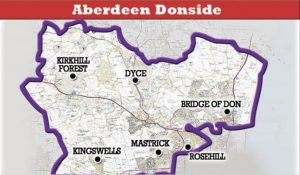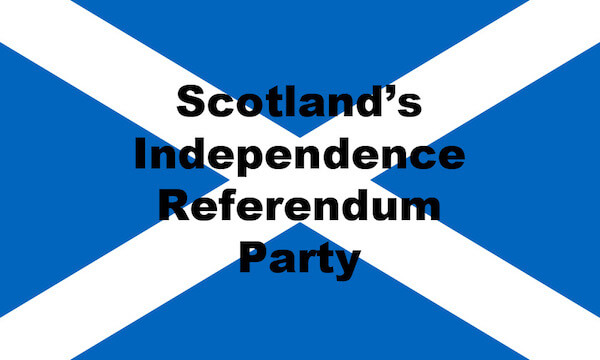 Following the decision of Aberdeen Donside MSP Mark McDonald to quit the SNP – but continue to sit as an Independent MSP in the Scottish parliament – it is unlikely that the SNP will hold the seat in the next Holyrood general election.
Following the decision of Aberdeen Donside MSP Mark McDonald to quit the SNP – but continue to sit as an Independent MSP in the Scottish parliament – it is unlikely that the SNP will hold the seat in the next Holyrood general election.
Even though McDonald held the seat in 2016 for the SNP with a 56% share of the vote, his admitted inappropriate behaviour towards women is likely to alienate at least half of the majority (ie the female-SNP vote).
And voters in general do not like Holyrood or Westminster MPs clinging to seats by quitting their party after unethical and/or inappropriate behavior.
So if half of the male-SNP vote then decides also not to vote for the new SNP candidate in the 2021 Holyrood election – this would leave the party then, in effect, defending a modest 10-12% majority.
In 2016, Labour and the Conservatives polled almost exactly the same share of vote, at 18.3% and 18.4% respectively.
So, it is likely that Aberdeen Donside will be won by whichever of these two parties can establish its position as ‘most likely to beat the other’ on an anti-SNP/ anti Scottish Independence ticket.
Given that the Labour vote fell 10% to 18.3% – while the Tories rose 10% to 18.4, this Conservatives are most likely to take the ‘most likely to beat the SNP’ vote.
Which is why Scotland’s Independence Referendum Party (SIRP) calls on the SNP to work together in a progressive alliance.
Mark R Whittet, leader of Scotland’s Independence Referendum Party, said: “Both our parties share the same, primary goal – ie Scottish Independence.
“And given the SNP’s dismal general election result last year (2017) when it lost more than 20 MPs – it cannot afford to lose any more MSPs than it has to in the next Holyrood election.
“By standing in Aberdeen Donside, Scotland’s Independence Referendum Party will provide SNP-scunnered voters a clear alternative opportunity to cast a positive vote for Scottish Independence, rather than let a Unionist party candidate win on an anti-SNP/anti Independence coalition – which was what, in effect, the outcome of the 2017 Westminster election was.
“The first-past-the-rotten-finishing post voting system (which applies to ‘traditional’ Scottish parliamentary constituencies) is already a major hurdle which gives the three main Unionist parties three times the chances of winning compared to just one for a party which supports Scottish Independence
“The next two general elections – at Holyrood in 2021 and at Westminster in 2022 – will simply serve as proxy Scottish Independence referenda, with the odds fixed 3:1 in favour of British Unionist parties.
“Scotland cannot afford to continue shooting itself in the political foot with petty party politics when we need to work together to – which is why Scotland’s Independence Referendum Party (SIRP) calls on the SNP to work together in a progressive alliance and stand aside in Aberdeen Donside.
“SNP leader Nicola Sturgeon has already called on McDonald to resign his seat.
“Now Sturgeon needs to accept the above political facts of life and stand aside in Aberdeen Donside.”
Prospective candidates interested in standing for Scotland’s Independence Referendum Party in Aberdeen Donside should contact the Party through the website: www.SIRP.Scot
Scotland’s Independence Referendum Party
The primary goal – and number one objective in the constitution of Scotland’s Independence Referendum Party – is to achieve political Independence for Scotland.
We aim to do so by helping to bring about a new/ second Scottish Independence Referendum in light of the entirely-changed political and constitutional landscape following the UK Brexit vote.
We shall do this by providing a meaningful, valid, SECOND choice/ chance to vote for Independence-supporting MSPs in elections to the next Scottish Parliament; ie SNP party members/ voters can vote ‘first’ choice for SNP on the ballot paper, and then vote ‘second’ choice for Scotland’s Independence Referendum Party on the ballot paper.
This gives two choices/ chances/ votes in favour of Scotland’s Independence (instead of the present 1/ SNP – and reduces the ‘stray’/ use-less ‘second’ vote going to any other British Unionist party.
Despite the use of the word ‘Scottish’ in front of their names, the Liberals, Tories and Labour are all single, British Unionist parties and are all controlled from, and based in, their London head offices.
Scotland’s Independence Referendum Party is not competing with the SNP; rather, we want to work in a progressive alliance with them.
